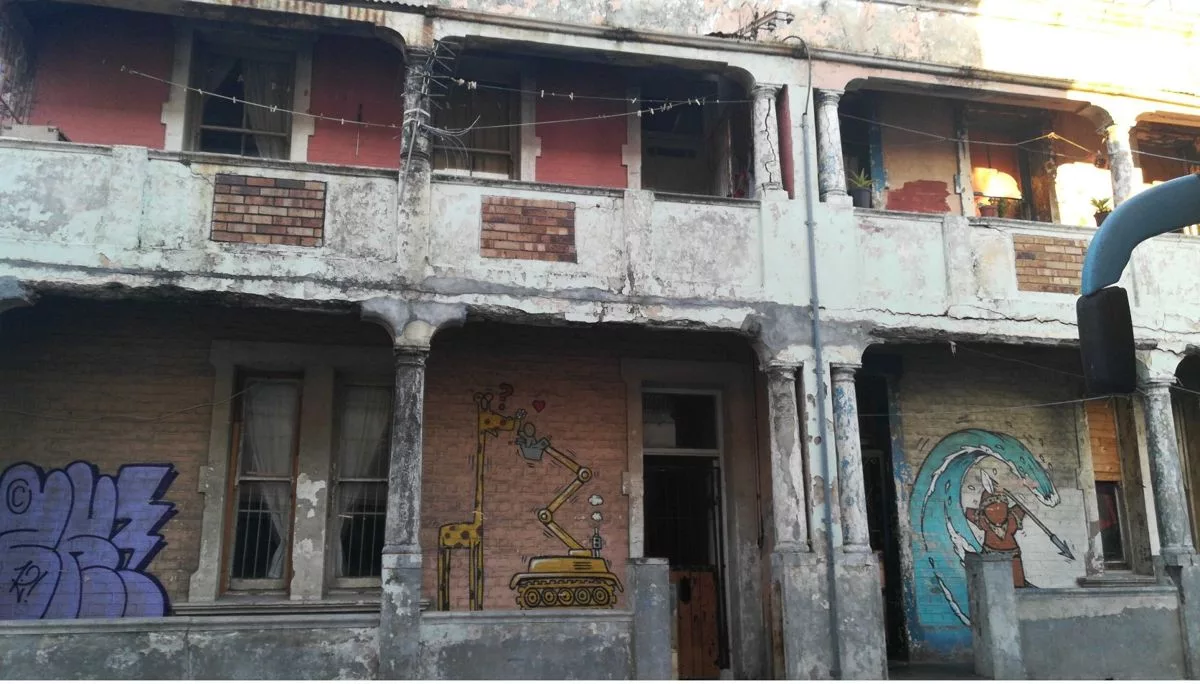Cape Town’s Problem Building Unit (PBU) is a team dedicated to resolving neglected buildings known as “problem buildings.” These buildings pose a threat to the community, become hotbeds for criminal activity, and are environmental hazards. The PBU uses a multi-tiered approach to enforce compliance with property owners and identify new problem buildings to ensure public safety and preserve the urban beauty of Cape Town’s cities. The PBU’s mission calls for community involvement in early reporting of potential problem buildings for a safer, cleaner, and more visually pleasing urban landscape.
What is Cape Town’s Problem Building Unit (PBU)?
Cape Town’s Problem Building Unit is a team dedicated to resolving cases of neglected buildings, or “problem buildings.” They use a multi-tiered approach to enforce compliance with property owners and identify new problem buildings. The PBU’s mission is to ensure public safety and preserve the urban beauty of Cape Town’s cities, calling for community involvement in early reporting of potential problem buildings.
Urban Preservation Warriors: Cape Town’s Problem Building Unit
Once glorious architectural masterpieces, an increasing number of dilapidated structures, or “problem buildings,” are emerging in our cityscapes. These neglected buildings, typically abandoned by absentee landlords or falling into disrepair due to lack of maintenance, pose more than merely visual insults. They become hotbeds for criminal activities, pose as environmental hazards, and instill a sense of desolation among local communities. One unsung hero, however, is rising to the challenge to reclaim urban safety and aesthetics: Cape Town’s Problem Building Unit (PBU).
In the one-year period between July 2023 and June 2024, the PBU accomplished the notable feat of resolving 425 cases, more than doubling the resolution of 207 cases in the previous year. But these numbers are not simply statistics. They are a testament to the PBU’s indefatigable dedication to ensuring public safety and preserving the urban beauty of our cities, even in the face of a growing surge of problem buildings.
The PBU’s Methodical Approach and Unyielding Commitment
The strategy adopted by the PBU to tackle these issues is intricate and multi-tiered, beginning with the issuance of a compliance notice to the property owner. If the owner chooses to ignore the notice, the PBU intensifies its efforts. Such measures can range from formally declaring the property a problem building, imposing a tariff on the owner’s municipal account, to even initiating legal measures to force the owner into action.
The PBU’s role transcends merely enforcing compliance. The unit is also instrumental in identifying 27 new problem buildings and manages an average of 291 active cases at various stages of investigation. Legal proceedings against 55 property owners have been launched, further demonstrating the PBU’s unwavering commitment to enforcing the law and maintaining urban order.
The Multifaceted Challenge of Problem Buildings
Unfortunately, the path to a safer urban landscape is fraught with hurdles. The proliferation of problem buildings is a nationwide, if not a global, issue driven by multiple factors. Economic distress and the ineffective implementation of the Prevention of Illegal Eviction (PIE) Act are just a few of the obstacles property owners grapple with. These challenges often lead to properties being deserted, which then transform into breeding grounds for illegal activities and pose environmental risks.
The menace of these problem buildings extends beyond impacting city aesthetics. They pose serious threats to the community, from encouraging criminal activities to becoming dumping grounds for waste, thereby creating health and fire hazards. The environmental consequences of these decaying structures are also noteworthy, with the city bearing the financial brunt of managing these risks.
The PBU’s Steadfast Mission and Call for Community Involvement
Despite these obstacles, the PBU remains unwavering in its mission. As Alderman JP Smith, the Mayoral Committee Member for Safety and Security, asserts, the unit continually innovates to improve efficiency and effectiveness. However, combating the issue of problem buildings is not a task for the PBU alone. It demands a collective effort, with an essential component being the early reporting of potential problem buildings by residents. This enables the PBU to swiftly mitigate the impact on the community.
To facilitate this, the city has set up a 24-hour emergency control room. It can be reached by dialing 021 480 7700 from a cell phone or 107 from a landline. Early reporting by vigilant residents, coupled with the tireless efforts of the PBU, forms a powerful defense against the menace of problem buildings.
In closing, the work of the PBU amounts to much more than merely concluding cases. It signifies the fight for safer neighborhoods, the conservation of urban aesthetics, and more significantly, the victory of community spirit over adversity. Amid the escalating wave of problem buildings, the PBU emerges as a beacon of hope, tirelessly striving for a safer, cleaner, and more visually pleasing urban landscape.
How does the PBU enforce compliance with property owners?
The PBU uses a multi-tiered approach to enforce compliance with property owners, beginning with the issuance of a compliance notice. If the owner chooses to ignore the notice, the PBU intensifies its efforts, which can range from formally declaring the property a problem building to initiating legal measures to force the owner into action.
What is the PBU’s role in identifying new problem buildings?
Apart from enforcing compliance, the PBU is instrumental in identifying new problem buildings. In the one-year period between July 2023 and June 2024, the PBU identified 27 new problem buildings and managed an average of 291 active cases at various stages of investigation.
What challenges do property owners face in dealing with problem buildings?
The proliferation of problem buildings is driven by multiple factors, including economic distress and the ineffective implementation of the Prevention of Illegal Eviction (PIE) Act. These challenges often lead to properties being deserted and transformed into breeding grounds for illegal activities and environmental risks.
What threats do problem buildings pose to the community?
Problem buildings pose serious threats to the community, from encouraging criminal activities to becoming dumping grounds for waste, thereby creating health and fire hazards. The environmental consequences of these decaying structures are also noteworthy, with the city bearing the financial brunt of managing these risks.
How can residents report potential problem buildings?
Residents can report potential problem buildings to the PBU through the city’s 24-hour emergency control room. It can be reached by dialing 021 480 7700 from a cell phone or 107 from a landline.
What does the PBU’s work signify?
The work of the PBU signifies the fight for safer neighborhoods, the conservation of urban aesthetics, and more significantly, the victory of community spirit over adversity. Amid the escalating wave of problem buildings, the PBU emerges as a beacon of hope, tirelessly striving for a safer, cleaner, and more visually pleasing urban landscape.












